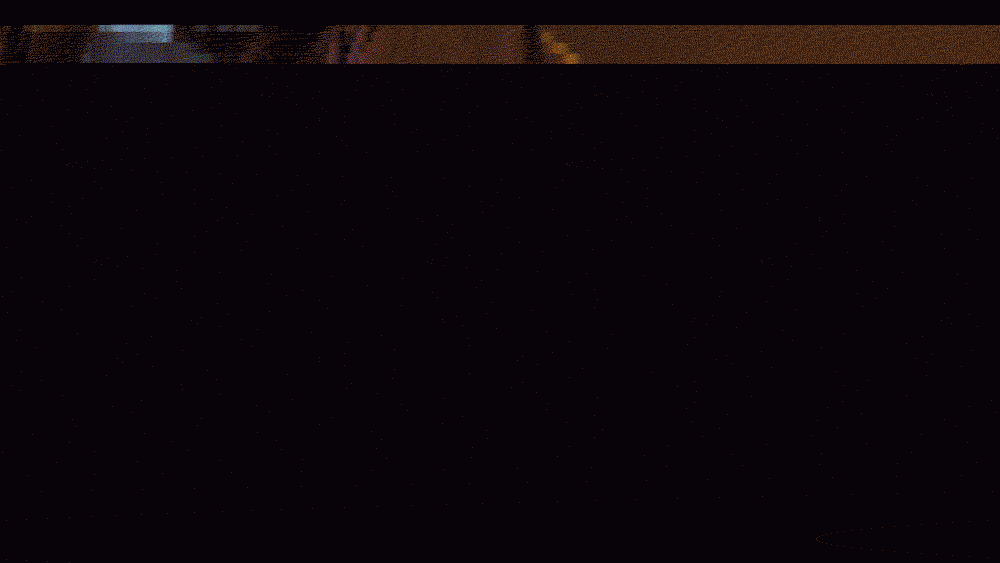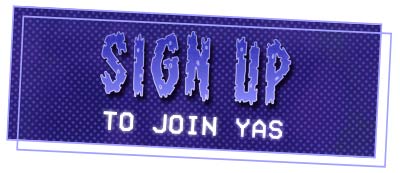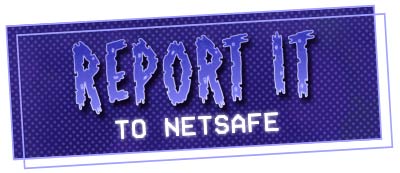Online bullying is so common that it can be embarrassing to actually talk about it. But so many people’s lives are shaped, and even ruined, by it. And many New Zealanders don’t know it’s actually illegal - a law created in 2015 made it a crime. In the second part of our series on online abuse, Report This Content, we hear from three young people about how cyberbullying damaged their lives.
Beitor Li is walking home from school fighting the urge to peer over his shoulder to see if anyone is behind him. Recently he’s felt like someone is watching him.
He’s 14, and an anonymous Facebook account has been relentlessly sending him messages. Yesterday they sent him photos of his mum’s car and last week it was a Google Maps link that tracked his route home.
“You looked like you had a broken leg today, maybe you didn’t. But if you want, I’ll be happy to give you one, Bff - A,” the latest message reads.
Bullying is far from a new concept. But as technology evolves and kids as young as nine have their own smartphones, it has taken on an even more pervasive and sinister form. These days, it’s common for victims to not even know who is bullying them.
![]()
“When you can't see the person face to face, you don't have to feel as guilty about it, because you don't know how they're reacting,” says 18-year-old Emma Kwan.
![]()
For a generation who’s grown up with a device in their hand, it’s worse than bullying in real life because it’s harder to escape. “People have their phones on them all the time so you can never really get away from your bullies,” says Emma.
Thirty percent of New Zealand teenagers have been cyberbullied, making young people the most vulnerable to this form of bullying, but they also find it the hardest to seek out support. Beitor, who’s now 16, along with Emma and and 18-year-old Sarisha hope sharing their story will destigmatise the conversation around bullying, along with the shame in asking for help.
Emma frowned when she read the new comment on her Instagram post. “I thought it was a pretty good photo,” she says. “That's why I posted it. But someone really didn’t agree.”
She’d taken the photo in her backyard one morning when she was 16. Her phone was propped up on a chair inside her house facing towards the garden behind her. A nice backdrop for the ‘Gram, she thought.
Dressed in jeans and a t-shirt, she had her back to the camera and was looking over her shoulder. After a few failed attempts at using the self-timer, she decided to record it as a video and then screenshot the perfect frame. “It was a whole journey to get the photo,” she laughs.
![]()
She stared at her phone and contemplated whether or not to respond to the comment. She’d never met this guy before but knew of him through her ex-boyfriend.
“I wouldn’t have posted it if I didn’t like it so I don’t really care what you have to say lol,” she typed back. The comments quickly spiralled out of control.
“It went from just commenting about my body to commenting about my race, and who I am as a person,” says Emma. Her friends piled on to support her and his friends did the same for him. Within a few days there were around 50 comments on her photo.
“I thought it would be the right thing to defend myself and not let these people talk about me in that way,” she says. “But I think in hindsight, I just gave them more to feed back onto.”

Teenage girls are by far the most likely victims of online abuse in New Zealand. Research from Victoria University revealed a quarter of teens between the ages of 12 and 17 have suffered online abuse, and the vast majority of victims were female. Netsafe reports this increases for those who are LGBTQI+, disabled, or a person of colour.
Emma eventually deleted the post to put an end to what felt like a “never-ending” comment war. But this only turned comments into direct messages. “I will personally come up to Auckland and rip your filthy tongues out of your mouth and shove them so far down your throat even your stomach would be disgraced of your language,” one message reads.
“If you're going to post pics like this on Instagram at this age. You're going to get hate my love, time to face facts.”
The incident took a toll on Emma.
![]()
Comments about her race made her lose her “sense of belonging” in New Zealand, the place she was born and has lived her whole life. She gradually stopped speaking to anyone and her self confidence was left shattered.
Emma already struggled with her body image. But after receiving the comments she became too insecure to post a photo without editing it first. She would use editing apps to cinch in her waist, slim down her legs and change the shape of her face.
“I thought, okay, I need to step it up and look better than what I did in that photo. And to do that I need to edit the photo and just look completely different.”
![]()
Instagram, the most popular social media platform among young people, is rife with bullying. Some accounts are made for the sole purpose of tormenting and shaming peers, and bullies can utilise anonymity to hide from any responsibility.
Bullying has become so rampant on the photo-sharing app they are trialling a feature that questions users before they post harmful comments - something that could prevent more stories like Emma’s.
Over time as she opened up to friends and a counsellor about what had happened, Emma’s self-esteem started to improve. Recently she hasn’t felt the need to edit her photos, but she still feels the effects of what happened every now and then. ”I'm definitely in a better place now than I was but it definitely took a lot of work and support to get to where I am now,” she says.
Sarisha’s story starts with the chime of a Facebook message. She was 15 at the time and had just been added to a group chat with two of her friends and someone by the name of Zac Smithlee, who she didn’t know.
Her friends introduce Zac and tell her that they know him from diving. His blurry underwater profile picture acted as proof of this connection.
It didn’t take long for the friends to pitch a dinner date with all of them. Confused but intrigued, Sarisha accepts and she and Zac start to message privately. The more they talk, and the more flirtatious the messages become, the more excited Sarisha gets about meeting him.
![]()
“I was quite interested to see if there was something potentially there and where it could possibly go,” says Sarisha.
But after about two weeks of messaging Sarisha gets the feeling something isn’t right. The tone of their conversation switches gear and Zac starts to ask Sarisha personal questions and brings up things only her closest friends know about her. “It seemed like the motive was to try to get any information out of me,” she says.
Then dates with Zac repeatedly fall through and excuses pile up about why he can’t video call or why he disappears offline for days or sometimes weeks at a time. Unlike most humans, Zac also had a strict rule against using his phone on the toilet. “‘I just have to go to the toilet, I just have to go do this, sorry I can’t talk, I'm grounded’ - he would use any excuse possible,” Sarisha laughs. As her suspicion grew, she decided to do what any tech-savvy teenager would do: a reverse image search.
![]()
For those that don’t know, a reverse image search is the people’s investigative tool, made famous by the shocking MTV series Catfish. Host Nev Schulman teaches us that if you ever get the feeling a profile is pretending to be something it’s not (what’s known as a catfish), all we need to do is save the photo, upload it to Google image search and then see what pops up. If the photo has been used on random websites or for other social media accounts, that’s a good sign you’re dealing with a catfish.
“So I did a reverse image search on Google and it was one of the top recent images and it was the stock picture,” says Sarisha. “I did go on to question him about it and he said, ‘oh, I must just be famous’.”
Now seriously questioning whether this person was real or not, Sarisha started to connect the dots. “I started noticing that when my friends would go offline this person would come online and vice versa,” she says. “I put two and two together and realised that it was my two friends in the original group chat that had set it up.”
![]()
Sarisha never confronted them, but she stopped messaging the account and “slowly cut them off as friends”. A move she was grateful for when not long after, one of them messaged her asking if she wanted to help her catfish another one of their friends.
“Why she did it, we're not really sure. I think it could easily be something to do with trust. Maybe she thought she could get information without it looking like it was her. She created another catfish account to try to catfish her boyfriend to see if he would cheat.”
Catfishing, the modern day prank call, is frighteningly common on social media. Fake accounts can be used to bully, humiliate, groom or scam people - and they can be tricky to spot.
Even though she was careful not to give any personal information away, Sarisha now realises how real catfishing is. She’s more cautious when logging on to any account these days. “I definitely learned how easy people can try to be someone else online… It can happen to anyone.”
A lot of people don’t realise that what happened to Emma, Beitor and Sarisha is actually illegal. In 2015, the Harmful Digital Communications Act (HDCA) was passed in New Zealand to legally prevent behaviour like online bullying including if it’s grossly offensive, threatening, harassing, incites suicide, or image-based sexual abuse. If someone is found to have breached the Act they can face up to two years’ imprisonment or a fine of up to $50,000.
Netsafe is an independent organisation appointed by the Government to keep New Zealanders safe online. They aren’t an enforcement agency, but they do work alongside the Police to assess and investigate breaches of the Act and provide support and advice to resolve incidents. Netsafe received more than 900 requests for help in the first six months of becoming the approved agency in November 2016.
Since the Harmful Digital Communications Act came into force in July 2015, 148 charges have been filed and 66 of these have been convicted and sentenced.
When Beitor walked through his front door he felt relieved. He knew he’d probably receive another message soon, but he felt safer reading them at home. Surely they weren’t watching him here, he thought. He pulled his phone out of his pocket to check and saw there was one new message.
“This Is Almost As Fun As Watching You Sleep - A.”
Over nine months of tormenting Beitor, the user impersonated the stalker from the TV series Pretty Little Liars. In the show, a character known as A taunts and threatens victims through phone messages.
Beitor blocked the account again but he knew it was only a matter of time before they made another. They had made four so far, all under the same name: Lucas Charlie Jallis.
![]()
Beitor changed his route home hoping to throw off whoever was following him. But then he received another message from the account: “Change Your Route Home Bff? - A”. It came with a Google Maps link of his route.
“I was scared,” says Beitor.
“I didn't have the bravery to walk home by myself. I would always feel paranoid that someone would be hiding behind a tree or a bush taking photos of me walking home.”
Beitor didn’t tell anyone at the time because he didn’t know who to trust. “I couldn't trust anyone around me because I thought that they would be the person behind this account.” He also worried that if he told anyone, they wouldn’t believe him. “I felt like no one would understand my situation and no one would actually care because it seemed unrealistic,” he says. “I felt isolated.”
![]()
The hidden nature of online bullying makes it a huge concern for youth wellbeing, says Beitor. “When young people go through this, it's hard for them to speak up. There’s sometimes a lot of shame.”
A survey done by bullying prevention organisation Sticks’n Stones in 2015 found that 47 percent of young Kiwis who had been bullied in the last six months did not tell anyone or reach out for support. Instead, they ignored it and hoped it would go away. A more recent study in 2018 found 31 percent of those experiencing or witnessing cyberbullying didn’t ask for help.
The impact of cyberbullying can not be underestimated. Those bullied online are twice as likely to attempt suicide or self-harm than their non-bullied peers.
A global online survey of around 5000 teenagers across 11 countries found 41 percent of people said cyberbullying made them feel depressed or helpless, 26 percent felt “completely alone” and 18 percent had suicidal thoughts. Not only is the emotional cost overwhelming, but the financial cost is also significant. A report in 2018 revealed the effects of cyberbullying cost New Zealand $444 million each year, and the bulk of this - $366 million - falls on family and friends trying to support loved ones.
Beitor eventually worked out that a group of girls at his school were sending the messages. He was told that one of them liked him and that’s why they set up the account - but it took months for them to admit it.
“I feel like the people behind this account thought they were just doing something playful, but it wasn't playful at all,” he says. He is still confused why someone would want to terrorise the person they liked, but he says that’s the nature of online bullying. “People hide behind screens and say whatever they want, just because they can…it just makes the damage even worse.”
Three years later Beitor now has the confidence to share what happened to him. “I need to tell people that I experienced this because if they have also experienced this, I could be their support,” he says.
He, Emma, and Sarisha are now all part of Netsafe’s Youth Action Squad (YAS), a group of 14 to 20 year olds who are passionate about online safety and empowering young people to speak up. They know firsthand that teenagers can find it hard to ask for help. But they hope that young people being able to reach out to other young people will make it just that little bit easier.
“I find it’s more relatable when we can talk to other young people who may have experienced what we have,” says Emma. “It’s just knowing that you're not alone because so many people experience the same thing.”
![]()
Despite being part of Netsafe now, all three of them weren’t aware of the online safety organisation when they needed it most. They say it's common for young people to have no idea what Netsafe is and how they can help.
If you or someone you know is being bullied online you can report the incident to Netsafe here. They can give you advice on how to solve the issue and show you how to keep yourself safe online.
“Knowing what I know now, I would have definitely reached out for support sooner,” says Emma. “Cyberbullying has devastating impacts on people no matter who you are.”
![]()
If you would like to be part of a youth-led movement to educate yourself and other Kiwis about online safety, plan initiatives, and enact positive change you can apply to join the 2020 Youth Action Squad now. They are looking for members who are passionate about sparking up conversations that matter to young people and finding solutions to online harm that will actually work.

